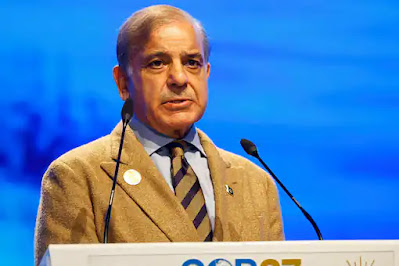On the verge of bankruptcy, Pakistan will present its annual budget to parliament today with a total expected outlay of rupees 14.5 trillion. Of this, rupees 1.8 trillion is likely to be allocated to defence. The budget is also likely to carry new and additional taxes to the tune of rupees 700 billion.
Pakistan, currently in the throes of a major political as well as economic crisis, is grappling with high external debt, a weak local currency and dwindling foreign exchange reserves. Apart from making it a people-friendly budget ahead of general elections expected later this year, the Shehbaz Sharif government must also satisfy the IMF to have any chance of securing the release of more bailout money.
Reports indicate that government employees may receive a boost of 30% in their ad hoc relief allowances as well as a 20% hike in pensions. It has also been suggested that the medical and conveyance allowance of government employees should be increased by 100%.
Reports further say a revenue collection target of rupees 9.2 trillion has been estimated. The Federal Board of Revenue (FBR) will be assigned a target of generating revenue at rupees 2.8 trillion, 55% of which will be transferred to the provinces. The total provincial development budget is expected to be rupees 1.55 trillion.
Here’s a look at the highlights of Pakistan Economic Survey 2022-23:
- Pakistan’s gross domestic product (GDP) grew by 0.29% to rupees 84.7 trillion
- The agriculture sector posted a growth of 1.55% in FY23, led mainly by improvement in wheat, sugarcane and maize and livestock
- The industrial growth contracted to 2.94% in fiscal year 2022-23 against growth of 6.83% in 2021-22
- The services sector witnessed meagre growth of 0.86% in the ongoing fiscal year compared to 6.59% in last fiscal year
- Headline inflation averaged 29.2% during July-May FY23 (average of 28.2% during July-April) against 11.3% in the same period last year
- Per capita income fell from $1,765 in fiscal year 2021-22 to $1,568 in 2022-23
- Investment-to-GDP ratio declined to 13.6% in FY23 from 15.6% in FY22
- Cotton production declined by 41% to 4.91 million bales
- Rice production declined to 7.32 million tonnes from 9.32 million tonnes
- Wheat production was recorded at 27.63 million tonnes compared to 26.21 million tonnes last year
- Fiscal deficit reduced to 4.6% of GDP (rupees 3,929.3 billion) during July-April 2022-23 against 4.9% (rupees 3,275.2 billion) in the same period last year
- Total revenues increased by 18.1% to rupees 6,938.2 billion (8.2% of GDP) in July-March 2022-23
- Tax revenues grew by 16.5% on the back of a significant rise in FBR tax collection
- Non-tax revenues grew by 25.5% to rupees 1.32 trillion during July-March FY23
- Total expenditures grew by 18.7% to rupees 10 trillion in Jul-Mar FY2023
- Bank deposits increased by rupees 683 billion during from July 1, 2022 to May 12, 2023
- Workers’ remittances registered a decrease of 13% at $22.7 billion during July-April 2022-23
- State Bank of Pakistan’s foreign exchange reserves declined to $4.5 billion by end of April 2023 mainly on account of amortization of official loans and liabilities during this fiscal year
- Total public debt stood at rupees 59.25 trillion by March-end 2023
The economy could slide closer to the cliff edge as a result of the latest bout of political instability, with former prime minister Imran Khan, the main opposition leader, locked in a dangerous struggle with the country’s powerful military.
Against the backcloth of this political drama, Finance Minister Ishaq Dar is set to deliver his budget speech to parliament after 4pm (4:30pm IST) on Friday.
On Thursday, the International Monetary Fund said that it has been discussing the budget with Pakistan.
Sharif’s government is hoping to persuade the IMF to unlock at least some of the $2.5 billion left in a $6.5 billion programme that Pakistan entered in 2019 and which expires at the end of this month.
Pakistan missed almost all of its economic targets set in the last budget, most notably its growth target, which was initially set at 5%, revised down to 2% earlier this year. Growth is now projected to be just 0.29% for the fiscal year ending June 30.











